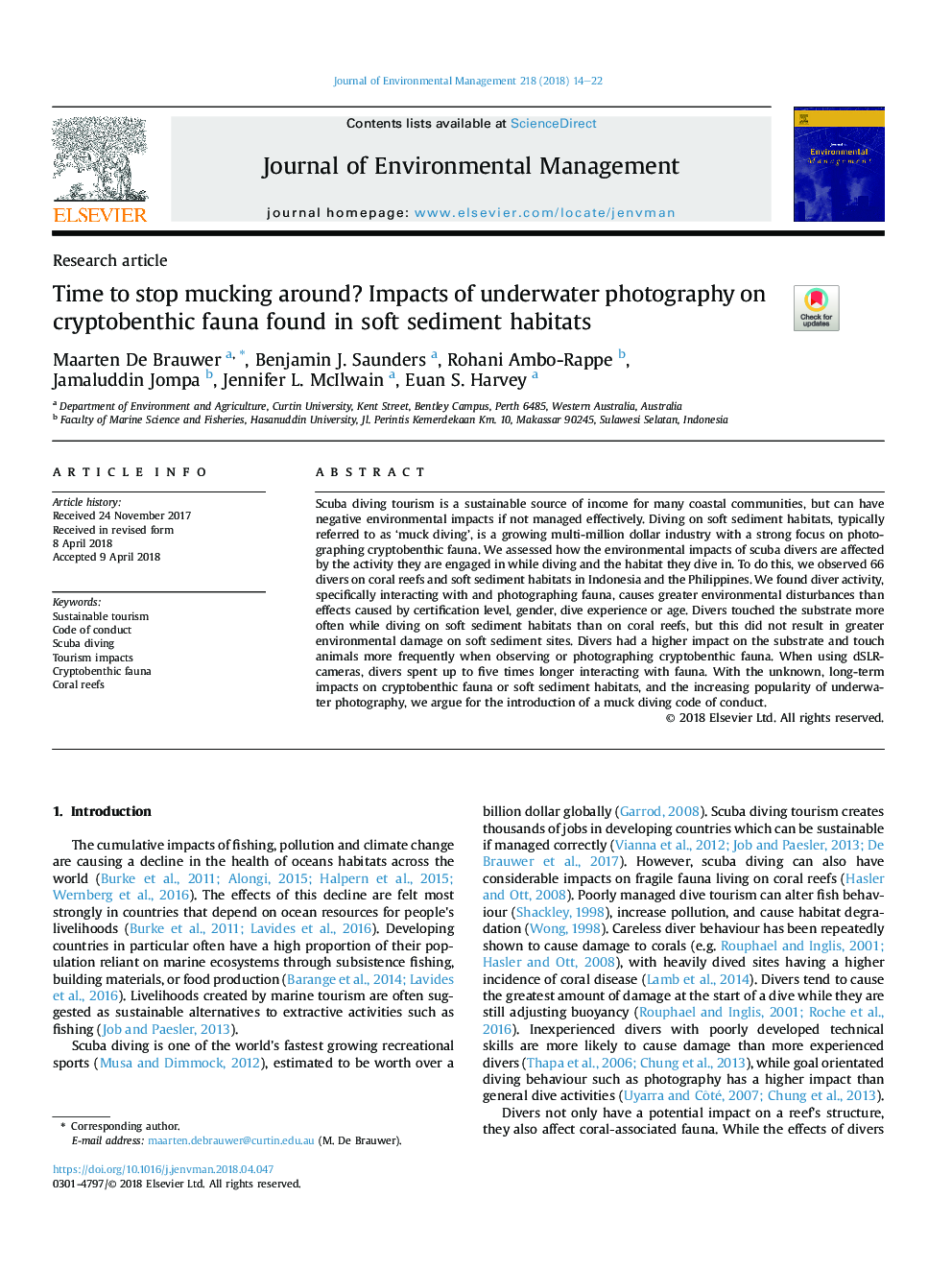| Article ID | Journal | Published Year | Pages | File Type |
|---|---|---|---|---|
| 7476801 | Journal of Environmental Management | 2018 | 9 Pages |
Abstract
Scuba diving tourism is a sustainable source of income for many coastal communities, but can have negative environmental impacts if not managed effectively. Diving on soft sediment habitats, typically referred to as 'muck diving', is a growing multi-million dollar industry with a strong focus on photographing cryptobenthic fauna. We assessed how the environmental impacts of scuba divers are affected by the activity they are engaged in while diving and the habitat they dive in. To do this, we observed 66 divers on coral reefs and soft sediment habitats in Indonesia and the Philippines. We found diver activity, specifically interacting with and photographing fauna, causes greater environmental disturbances than effects caused by certification level, gender, dive experience or age. Divers touched the substrate more often while diving on soft sediment habitats than on coral reefs, but this did not result in greater environmental damage on soft sediment sites. Divers had a higher impact on the substrate and touch animals more frequently when observing or photographing cryptobenthic fauna. When using dSLR-cameras, divers spent up to five times longer interacting with fauna. With the unknown, long-term impacts on cryptobenthic fauna or soft sediment habitats, and the increasing popularity of underwater photography, we argue for the introduction of a muck diving code of conduct.
Related Topics
Physical Sciences and Engineering
Energy
Renewable Energy, Sustainability and the Environment
Authors
Maarten De Brauwer, Benjamin J. Saunders, Rohani Ambo-Rappe, Jamaluddin Jompa, Jennifer L. McIlwain, Euan S. Harvey,
